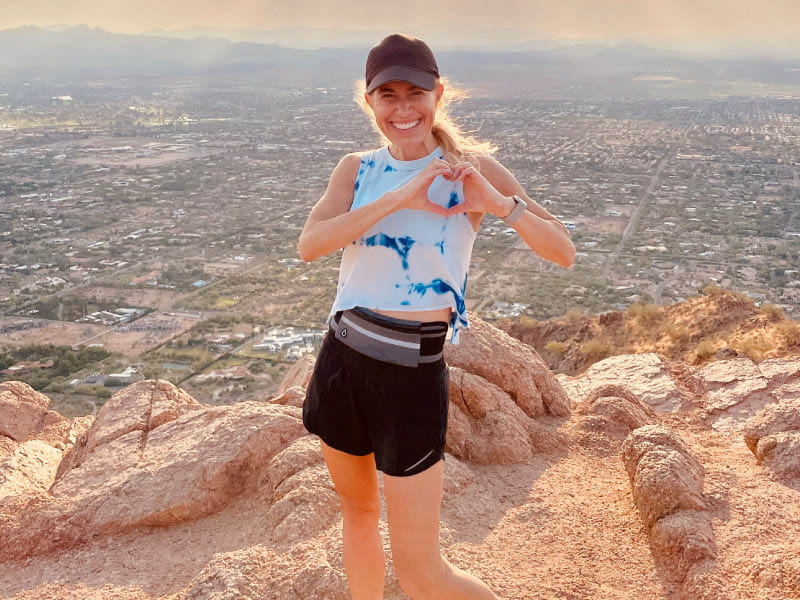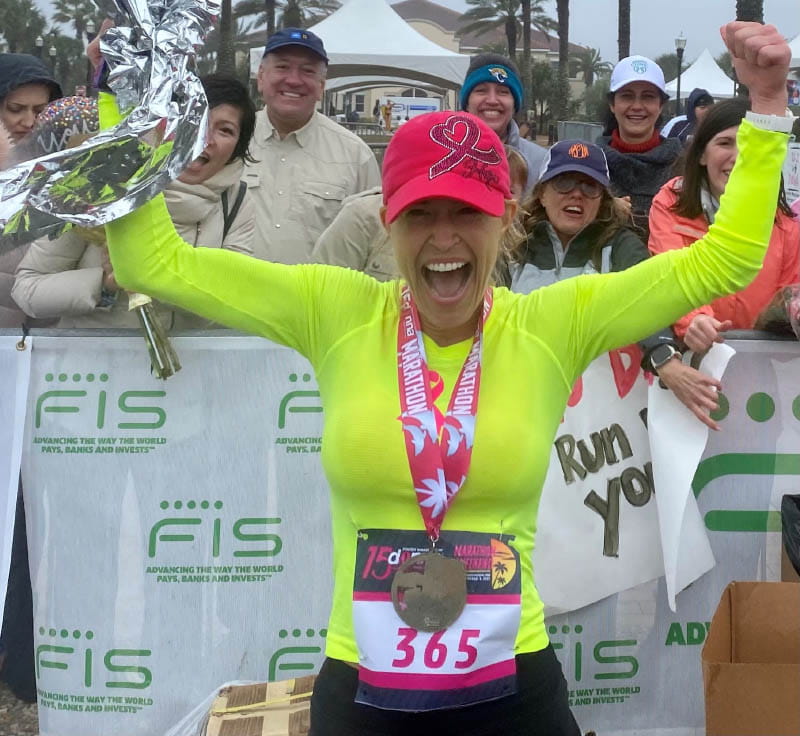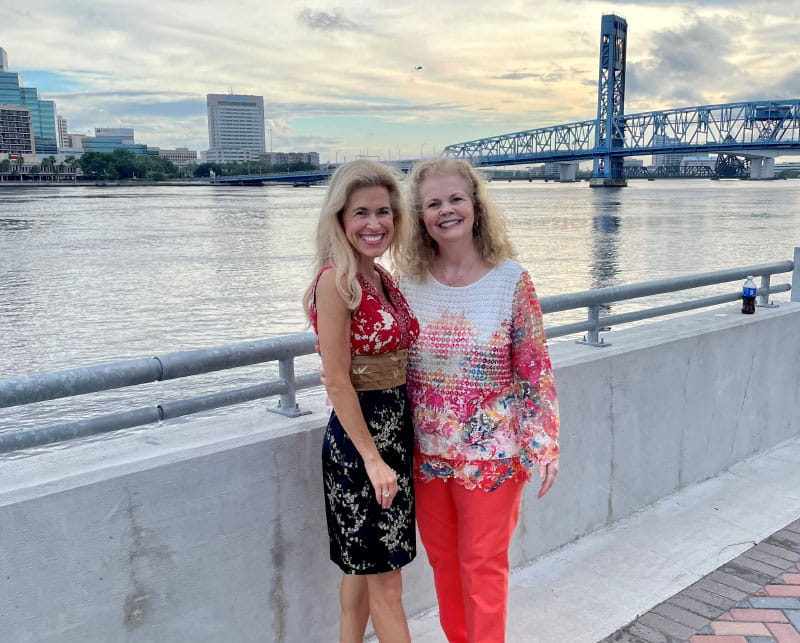She's survived cancer, heart failure and a heart transplant
By Laura Williamson, American Heart Association News

When Dawn Mussallem was little, she dreamed of having her face on a Smucker's jar – the recognition the "Today" show gives to people who reach their 100th birthday.
So, she committed herself to eating a healthy plant-based diet, eschewing junk food and many childhood staples, like chocolate milk and sugary cereals. She also stayed physically active – becoming a competitive gymnast and running on the weekends.
"I wanted to live to be the oldest woman in the world," Mussallem said. She also dreamed of becoming a doctor.
Three months into medical school, Mussallem collapsed climbing a flight of stairs. This led to not only a diagnosis of non-Hodgkin lymphoma, but news that it was stage 4 – the final stage. Mussallem clung to her dream of longevity as she endured chemotherapy, a bone marrow transplant and radiation therapy.
Somehow, she never even felt sick during her treatment. Surely her high level of fitness, healthy eating and positive attitude played a role. As did her insistence on continuing her life. That meant continuing her med school studies throughout her treatment. She also continued to live the life of a 20-something. She fell in love. She got married.
What she didn't realize was that the chemotherapy and radiation had quietly damaged her heart.
Then Mussallem got pregnant. Within weeks of giving birth, she went into cardiogenic shock. Her heart was no longer able to pump enough blood and oxygen to her brain and other organs. She had advanced heart failure.
Her doctors told her she needed a heart transplant. And that she should quit medical school.
She refused.
"I wanted to serve others, and this gave me the ability to not just worry about my treatment," she said. "I wanted to put my energy into medical school."
Ultimately, doctors were able to control Mussallem's heart condition with medication and an implantable cardioverter defibrillator, or ICD. The device monitors the heart's rhythm, so if it ever goes awry, it can be shocked back into a normal rhythm. The transplant was postponed. She finished medical school and started a residency in family medicine.
And then, her husband died of cardiac arrest.
"I was the one who was supposed to die, not him," Mussallem said.
Eight years later, her own heart started to give out again. She found herself unable to keep up at the hospital, so she transitioned her practice to the breast cancer clinic, where the hours were less demanding. Still, she found herself feeling weak and nearly passing out.
Then one day, as she hurried down the stairs to a leadership meeting where she was scheduled to speak, she felt her legs go weak. When she reached the boardroom, she was short of breath. She had trouble opening the door. She sat down at the table and lost consciousness.
A shock from the ICD restored her heart's normal rhythm. It also put Mussallem into a heightened state of awareness. Her senses began firing so keenly that she felt a single hair stuck to her lipstick.
Again, she survived. But her health continued to decline. Eventually, she went on the heart transplant list. In February 2021 – 14 months later – they found a match.
The surgery went smoothly. So did her recovery. Her new, healthy heart worked so well that she discovered sensations that weren't possible with her old, diseased heart.
"I felt warm for the first time," she said.
With her goal of living to 100 back on track, Mussallem was eager to return to exercise. She began running again. An hour a day, four days a week. Longer on the weekends. She started yoga twice a week for flexibility. She also added light weights and resistance training.
"My life had been on hold for 18 years," she said. "All that energy was bottled up!"
Three months after her transplant, she ran a 5K. A month later, she climbed Camelback Mountain in Arizona. On the one-year anniversary of her transplant, she ran a marathon.

She saw the marathon as a metaphor for her life's journey. "I attribute my ability to maintain vitality to a lifetime of taking good care of myself," said Mussallem, now 48 and living in Jacksonville, Florida.
Her mother, Christine Stahurski, agrees.
"Her strength and her will and her nature to not give up, that all played into her survival," Stahurski said. "I'm so grateful that she has the spirit she has and never gave up."

She's still holding out for that Smucker's jar.
Stories From the Heart chronicles the inspiring journeys of heart disease and stroke survivors, caregivers and advocates.





